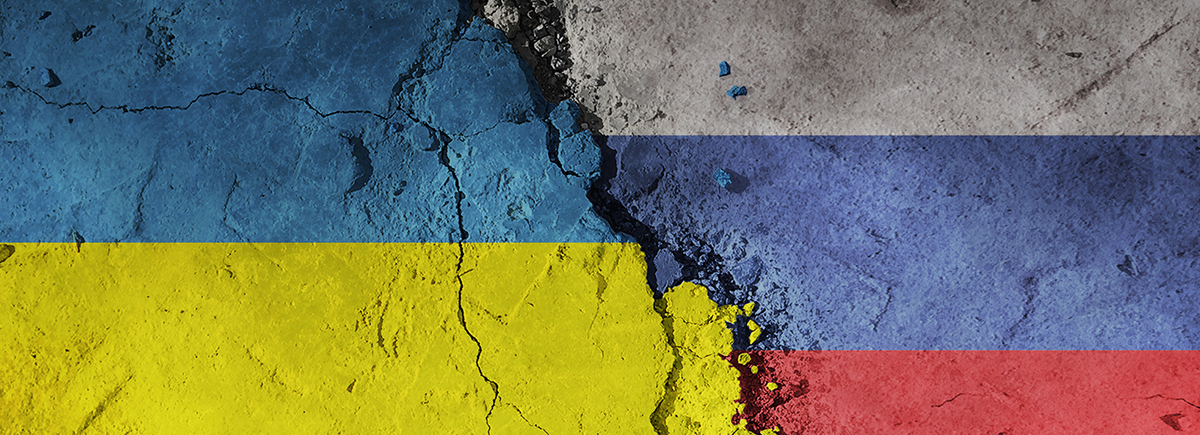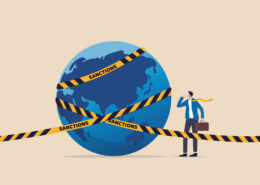Exhausting Russian Resources by Sanctioning Western Software
Guidance for Governments and Companies Formulating Sanctions Proposals
📅 February 8, 2024
📅 February 8, 2024
The Yermak-McFaul International Working Group on Russia Sanctions last month published its Working Group Paper #17: Exposing and Exploiting the Kremlin’s Software Networks and Dependencies, discussing the interconnected software infrastructure that sustains Russia’s illegal conflict in Ukraine and underscoring its associations with entities in nations that have enforced sanctions. The paper provides guidance for governments and companies in formulating sanctions proposals that will limit Russia’s access to Western software, ultimately increasing the cost of war for Moscow.
The paper’s key findings underscore the interdependence between the Russian software ecosystem and Western technology and the potential vulnerabilities countries that imposed sanctions on Russia after its invasion of Ukraine can exploit through additional targeted sanctions and regulatory measures.
Global export control and sanctions efforts continue to evolve to hinder Russian access to western products. The US Commerce Department’s Bureau of Industry and Security (BIS) in October 2023 published a list in collaboration with the EU, Japan, and the UK, containing 45 high-priority items that pose the highest risk of being diverted illegally to Russia. The BIS stated that these items, which include integrated circuits and radio frequency transceiver modules, have been found in Russian missiles and drones used in Ukraine. These controls, coupled with the imposition and enforcement of sanctions and other restrictions against entities and individuals that facilitate Russia’s access to sensitive technologies, allow countries to adopt appropriate measures to counteract Russian evasion strategies. Adoption of recommendations in the Working Group paper will also help stymie Russia’s access to software products that allow it to manufacture munitions and military systems to aid its war in Ukraine.
The connections between software developers and companies in countries that have imposed sanctions on Russia carry significant implications, suggesting that Western technology and expertise are indirectly supporting Russia’s military and civilian infrastructures. Russia’s slow progress in transitioning to domestic software and its ongoing attempts to reduce reliance on Western software create a continuing opportunity to use sanctions and regulatory channels to weaken Russia’s technological infrastructure.
Technology firms and financial institutions should carefully monitor transactions between Russian companies and software service providers, as well as the regulatory developments that could impose further restrictions on their business with Russian customers and business partners. The Institute for Financial Integrity continuously monitors regulatory developments in the sanctions and trade control space, providing warnings, key takeaways, and insights into the continuously changing world that can impact US persons and entities.

The Institute for Financial Integrity hosted a webinar to mark the two-year anniversary of Russia’s invasion of Ukraine on February 24, 2022. Watch the recording, during which IFI’s Nicki Kenyon and Pavel Verkhniatskyi, Managing Partner of Ukrainian due diligence and corporate intelligence firm COSA, discuss two years of sanctions, restrictions, and other measures countries around the world have implemented.
This is an outstanding opportunity to hear from an expert on the ground in Ukraine and understand compliance, due diligence, and investigations into Russia’s efforts to evade sanctions from Ukraine’s perspective.

Two years after its full-scale invasion of Ukraine, Russia has become the most sanctioned country in the world, with world powers imposing thousands of sanctions and other restrictions against Russian individuals, entities, vessels, and aircrafts. Strategic trade controls have become a substantial part of efforts to degrade Russia’s military capabilities and weaken its ability to wage war. At the same time, Moscow continues to come up with innovative and complicated ways to evade sanctions and trade restrictions and gain access to necessary resources to continue its aggression in Ukraine.









 Institute for Financial Integrity Partners with Coenobium Advisors to Deliver...
Institute for Financial Integrity Partners with Coenobium Advisors to Deliver...This site uses cookies. By continuing to browse the site, you are agreeing to our use of cookies.
Accept settingsHide notification onlySettingsWe may request cookies to be set on your device. We use cookies to let us know when you visit our websites, how you interact with us, to enrich your user experience, and to customize your relationship with our website.
Click on the different category headings to find out more. You can also change some of your preferences. Note that blocking some types of cookies may impact your experience on our websites and the services we are able to offer.
These cookies are strictly necessary to provide you with services available through our website and to use some of its features.
Because these cookies are strictly necessary to deliver the website, refusing them will have impact how our site functions. You always can block or delete cookies by changing your browser settings and force blocking all cookies on this website. But this will always prompt you to accept/refuse cookies when revisiting our site.
We fully respect if you want to refuse cookies but to avoid asking you again and again kindly allow us to store a cookie for that. You are free to opt out any time or opt in for other cookies to get a better experience. If you refuse cookies we will remove all set cookies in our domain.
We provide you with a list of stored cookies on your computer in our domain so you can check what we stored. Due to security reasons we are not able to show or modify cookies from other domains. You can check these in your browser security settings.
These cookies collect information that is used either in aggregate form to help us understand how our website is being used or how effective our marketing campaigns are, or to help us customize our website and application for you in order to enhance your experience.
If you do not want that we track your visit to our site you can disable tracking in your browser here:
We also use different external services like Google Webfonts, Google Maps, and external Video providers. Since these providers may collect personal data like your IP address we allow you to block them here. Please be aware that this might heavily reduce the functionality and appearance of our site. Changes will take effect once you reload the page.
Google Webfont Settings:
Google Map Settings:
Google reCaptcha Settings:
Vimeo and Youtube video embeds:
You can read about our cookies and privacy settings in detail on our Privacy Policy Page.
Privacy Policy